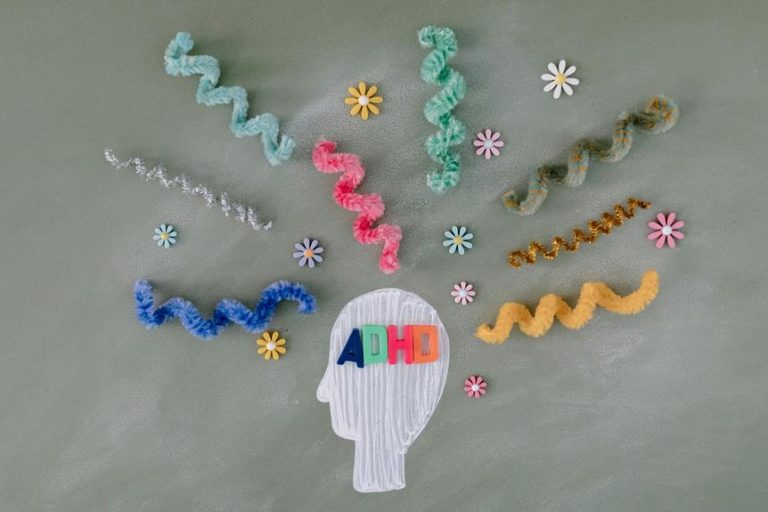Confidence Dumping Adhd
Have you ever felt like your need for validation was a bit too demanding? Imagine this: you're in a conversation, and suddenly, you find yourself constantly highlighting your accomplishments, almost as if you're seeking approval.
The phenomenon of confidence dumping in individuals with ADHD goes beyond just seeking acknowledgment; it can impact relationships and self-esteem greatly. But what lies beneath this behavior, and how can one navigate it effectively?
Let's explore the complexities of confidence dumping in the context of ADHD and discover strategies to foster healthier interactions and a stronger sense of self-worth.
Key Takeaways
- ADHD challenges impact confidence levels through impulsivity and emotional dysregulation.
- 'Confidence dumping' behaviors include body language cues and seeking validation.
- Boost self-esteem with positive self-talk, achievable goals, and celebrating victories.
- Address self-deprecating remarks to improve self-confidence and combat imposter syndrome.
Impact of ADHD on Confidence Levels

ADHD greatly affects confidence levels by presenting challenges such as impulsivity, disorganization, and emotional dysregulation. These difficulties can contribute to low self-esteem and feelings of inadequacy in individuals with ADHD. The impulsivity associated with ADHD may lead to hasty decisions or actions, impacting one's self-assurance. Additionally, disorganization can result in missed deadlines or forgetfulness, further eroding confidence.
Emotional dysregulation in ADHD can manifest as intense emotional reactions to situations, making it challenging to maintain a positive self-image. Individuals with ADHD may also experience rejection sensitive dysphoria, where perceived criticism or rejection can significantly impact their confidence levels. This heightened sensitivity to criticism can further exacerbate feelings of low self-esteem.
To address these challenges and build self-esteem, it's essential for individuals with ADHD to acknowledge their strengths, seek support from loved ones or professionals, and develop strategies to manage their symptoms effectively. By recognizing their capabilities and seeking help when needed, individuals with ADHD can work towards improving their confidence levels and overall well-being.
Signs of 'Confidence Dumping' Behavior

I noticed that discussing signs of 'confidence dumping' behavior can shed light on patterns that may indicate a need for support or validation.
Body language cues, self-deprecating remarks, and constantly seeking reassurance are common signs to watch for in oneself or others.
Understanding these behaviors can help in fostering healthier communication and self-awareness, especially for individuals with ADHD managing their confidence levels.
Body Language Cues
When observing individuals exhibiting 'Confidence Dumping' behavior, one can detect subtle yet telling signs through their body language cues. Excessive gesturing and grandiose posture are common indicators of this negative mental state.
Maintaining prolonged eye contact while discussing achievements is a key sign of confidence dumping, as it often reflects a need for validation. On the other hand, fidgeting or restless movements may suggest underlying nervousness or insecurity driving the behavior.
Closed body language, like crossed arms or turned away posture, can signal defensiveness in those engaging in confidence dumping. Additionally, mirroring behaviors, such as nodding excessively, might be a subconscious attempt to seek approval during these interactions.
Understanding these body language cues can help in identifying and addressing confidence dumping tendencies in individuals.
Self-Deprecating Remarks
Shifting from observing body language cues associated with 'Confidence Dumping' behavior, the manifestation of self-deprecating remarks serves as another significant indicator in individuals potentially struggling with this negative mental state. When it comes to self-deprecating remarks in the context of ADHD, several key points are worth noting:
- Individuals with ADHD might use self-deprecation as a defense mechanism to downplay their achievements.
- Constantly making self-deprecating comments can indicate a lack of self-confidence or a need for external validation.
- People with ADHD may struggle with imposter syndrome, leading to self-deprecating behavior.
- Recognizing and addressing self-deprecating remarks can help individuals with ADHD build healthier self-esteem and confidence.
Understanding the role of self-deprecating remarks is vital in supporting individuals with ADHD towards a more positive self-perception.
Seeking Constant Reassurance
In individuals with ADHD, seeking constant reassurance often manifests as a behavior indicative of 'Confidence Dumping', characterized by a persistent need for validation and approval from others. This continuous seeking of external validation may stem from underlying struggles with self-esteem. Individuals experiencing this behavior may find themselves trapped in a cycle of seeking approval to feel secure in themselves.
However, this pattern can be emotionally draining, not only for the individual but also for those around them. Understanding the root causes behind the constant need for reassurance is vital in helping individuals with ADHD build healthier self-confidence. By addressing these underlying issues, individuals can work towards developing a more sustainable sense of self-assurance and reduce their reliance on external validation.
Strategies to Boost Self-Esteem

When it comes to boosting self-esteem in individuals with ADHD, implementing positive self-talk techniques, setting achievable goals, and celebrating small victories are key strategies.
By consciously shifting internal dialogue to be more supportive and encouraging, individuals can start building a foundation of self-belief and confidence.
Setting realistic goals and acknowledging even the smallest accomplishments can further reinforce a sense of competence and worth.
Positive Self-Talk Techniques
Positive self-talk techniques, such as affirming oneself with encouraging and uplifting statements, play an important role in boosting self-esteem and reshaping self-perception. Utilizing affirmations like 'I am capable and worthy' can help counter negative thoughts and beliefs, leading to an improved self-image over time.
Research indicates that regular practice of positive self-talk not only enhances confidence but also reduces stress levels, increases resilience, and contributes to overall well-being. By fostering encouraging statements and uplifting beliefs within ourselves, we can cultivate a more positive internal dialogue that supports our mental and emotional health.
Embracing these techniques can be a powerful tool in nurturing a stronger sense of self-worth and self-assurance.
- Counter negative thoughts with positive affirmations.
- Practice regular positive self-talk for long-term self-image improvement.
- Reduce stress levels and increase resilience through encouraging self-dialogue.
- Enhance overall well-being by fostering uplifting beliefs within oneself.
Setting Achievable Goals
Shifting from positive self-talk techniques, individuals with ADHD can greatly boost their self-esteem by implementing effective strategies to set achievable goals. Setting clear and realistic goals is crucial for individuals with ADHD to track progress and experience a sense of accomplishment.
Breaking down larger goals into smaller, manageable steps is a key strategy that can lead to success. By celebrating small victories along the way, individuals with ADHD can stay motivated and reinforce a positive self-perception. Consistent goal-setting and progress monitoring play an essential role in enhancing self-esteem and confidence over time.
This approach not only helps in boosting self-esteem but also provides a tangible way to measure progress and gain a confidence boost.
Celebrating Small Victories
Celebrating small victories plays an important role in boosting self-esteem and confidence for individuals with ADHD. When it comes to confidence dumping, recognizing even minor accomplishments can have a significant impact on improving one's self-worth. Here are four key ways celebrating small victories can contribute to positive self-esteem and well-being:
- Acknowledging small wins provides a sense of achievement and validation.
- Focusing on these victories helps individuals with ADHD see their progress and growth.
- Embracing and celebrating these successes can lead to a more positive self-image.
- Recognizing and celebrating small achievements can contribute to overall well-being, fostering a sense of accomplishment and motivation.
Importance of Social Support

Establishing a diverse network of social support is important for individuals with ADHD as it can greatly reduce the inclination towards confidence dumping behaviors. Having a wide range of social support, including friends, family, and therapists, provides different perspectives and emotional backing.
Sharing joys and achievements with various people spreads validation, fostering a sense of belonging and enhancing self-esteem. Seeking affirmation from multiple sources helps individuals with ADHD feel more secure and confident in themselves.
It's critical to establish healthy boundaries and maintain open communication within social circles to create a supportive environment that minimizes the urge for confidence dumping. This diverse support system not only offers encouragement but also serves as a safety net during challenging times.
Journaling for Confidence Building

Utilizing journaling as a tool for building confidence can greatly benefit individuals with ADHD by providing a structured way to track accomplishments and boost self-esteem. Journaling serves as a reflective practice that allows individuals to document their achievements, leading to a sense of validation and progress.
Writing down positive experiences can effectively counterbalance the negative thoughts and feelings often associated with ADHD, offering a more balanced perspective. Regularly journaling not only helps in acknowledging personal growth but also acts as a tangible reminder of one's capabilities and successes.
Keeping a journal becomes a personalized and powerful tool for individuals with ADHD to enhance their self-esteem and confidence levels. Through the act of journaling, individuals can witness their journey, celebrate their wins, and cultivate a more positive self-image, contributing significantly to their overall well-being and mental health.
Overcoming Negative Thought Patterns

Addressing negative thought patterns is a fundamental step towards boosting self-esteem and confidence, particularly for individuals with ADHD. Negative thoughts can contribute to feelings of insecurity and self-doubt, hindering personal growth and well-being. By recognizing and reframing these negative beliefs, individuals can begin to overcome the barriers that hold them back. Cognitive-behavioral techniques offer practical strategies to challenge and change these thought patterns effectively. This approach involves identifying irrational or harmful thoughts and replacing them with more significant and positive alternatives.
Creating a supportive environment that promotes positive thinking is also essential in overcoming negative thought patterns. Surrounding oneself with understanding and encouraging individuals can provide the necessary reinforcement to challenge pessimistic beliefs. Engaging in activities that boost self-esteem and confidence, such as setting achievable goals and celebrating successes, further aids in combating negative thoughts. By actively working towards reframing negative beliefs and fostering a positive mindset, individuals with ADHD can cultivate a stronger sense of self-worth and resilience.
Frequently Asked Questions
Do People With ADHD Struggle With Confidence?
Yes, people with ADHD often struggle with confidence. Challenges such as self-worth struggles, social anxiety, imposter syndrome, and perfectionism pressure can contribute to this. Seeking validation, negative self-talk, and overthinking are common, but coping mechanisms can help.
Does ADHD Usually Manifest Lack of Confidence?
Struggling with confidence is a common manifestation of ADHD. Challenges with organization and impulsivity can impact self-esteem. Understanding ADHD traits is essential for developing coping mechanisms, seeking therapeutic interventions, and building support networks for personal growth and improved self-esteem.
How Do I Build Confidence in My Child With Adhd?
To build confidence in a child with ADHD, positive reinforcement, a strong support network, cognitive behavioral therapy, self-care practices, and mindfulness techniques can be instrumental. Setting goals, celebrating successes, fostering independence, and seeking professional help are essential.
Conclusion
Crucial, confidence dumping in individuals with ADHD may seem like a cry for validation, but it often ends up pushing people away. While seeking external approval is natural, finding healthy ways to build self-esteem and seek support from a diverse group of people is paramount.
So next time you feel the urge to brag excessively, remember that true confidence comes from within, not from constantly seeking validation from others. It's not about being the loudest voice in the room, but about finding your own inner strength.







